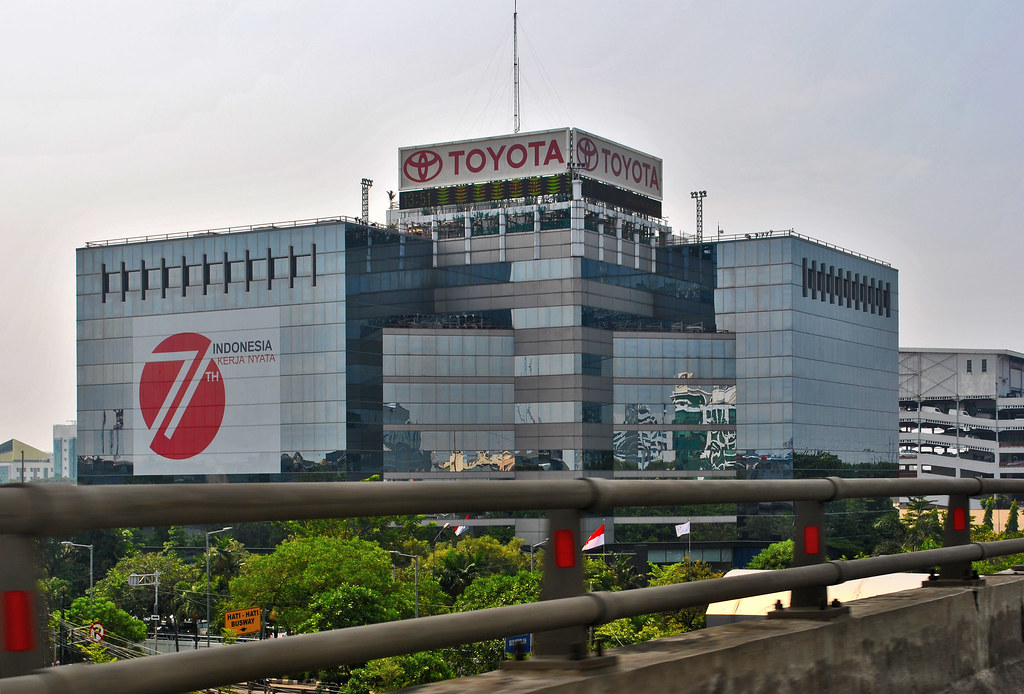Toyota and Nissan are two of Japan’s most iconic automotive brands. For decades, they have competed fiercely in the global marketplace, producing reliable and high-quality vehicles for millions of customers around the world. But which brand is truly superior? In this article, we’ll take a deep dive into the design, performance, safety, technology, and ownership costs of Toyota and Nissan to determine which brand comes out on top.
Design and Styling
When it comes to design and styling, both Toyota and Nissan have their own unique approaches. Toyota is known for its conservative and timeless designs, which tend to prioritize functionality over flamboyance. Nissan, on the other hand, is known for its more daring and innovative designs, which often incorporate cutting-edge technology and futuristic styling elements. Let’s take a closer look at each brand’s design philosophy.

Toyota Design and Styling
Toyota has a reputation for producing some of the most reliable and long-lasting vehicles on the market. While its designs may not be as flashy or avant-garde as some of its competitors, Toyota’s focus on practicality and functionality has made it a favorite among drivers who prioritize reliability and efficiency over style.
One example of Toyota’s design philosophy is the Toyota Camry. The Camry is a mid-size sedan that has been a best-seller in the United States for decades. While its design has evolved over the years, it has remained true to its roots as a practical and dependable family sedan. The Camry features a sleek, aerodynamic profile that is designed to reduce wind resistance and improve fuel efficiency. The interior is spacious and comfortable, with intuitive controls and ample storage space.
Another example of Toyota’s design philosophy is the Toyota RAV4. The RAV4 is a compact SUV that has become increasingly popular in recent years. Its design is clean and modern, with sharp lines and a bold front grille that give it a sporty and adventurous look. The RAV4’s interior is well-designed and comfortable, with plenty of room for passengers and cargo.
Nissan Design and Styling
Nissan, on the other hand, is known for its more daring and innovative designs. The company’s designers are not afraid to experiment with new technologies and styling elements, and this has led to some truly memorable and iconic vehicles.
One example of Nissan’s design philosophy is the Nissan GT-R. The GT-R is a high-performance sports car that has been dubbed the “Godzilla” of the automotive world. Its design is inspired by Japanese culture and mythology, with sharp lines and aggressive styling that convey power and speed. The GT-R’s interior is also designed for performance, with a driver-centric cockpit and advanced technology that enhances the driving experience.
Another example of Nissan’s design philosophy is the Nissan Leaf. The Leaf is an all-electric car that has been praised for its innovative and eco-friendly design. The Leaf’s exterior is distinctive and futuristic, with a sleek and aerodynamic profile that helps to reduce wind resistance and improve range. The Leaf’s interior is also innovative, with a spacious and modern cabin that features advanced technology and intuitive controls.
Performance and Handling
When it comes to performance and handling, Toyota and Nissan both have a reputation for producing reliable and efficient vehicles. However, each brand has its own unique approach to performance, with different strengths and weaknesses. Let’s take a closer look at each brand’s approach to performance.
Toyota Performance and Handling
Toyota has a long-standing reputation for producing reliable and fuel-efficient vehicles. While the brand may not be known for producing high-performance sports cars, it does offer a range of vehicles that are designed to deliver a smooth and comfortable ride.
One example of Toyota’s approach to performance is the Toyota Prius. The Prius is a hybrid car that has become an icon of the green movement. It is designed to deliver exceptional fuel efficiency with a hybrid powertrain that combines a gasoline engine with an electric motor. The Prius is also known for its smooth and quiet ride, thanks to its advanced suspension system and aerodynamic design.
Another example of Toyota’s approach to performance is the Toyota Supra. The Supra is a high-performance sports car that has been making headlines since its debut in the 1980s. It is designed to deliver a thrilling driving experience with a powerful engine, precise handling, and responsive brakes. The Supra’s interior is also designed for performance, with sport seats and advanced technology that enhances the driver’s control over the vehicle.
Nissan Performance and Handling
Nissan has a reputation for producing vehicles that are sporty and fun to drive. The brand’s engineers are known for their focus on performance, and this has led to some impressive and memorable vehicles.
One example of Nissan’s approach to performance is the Nissan 370Z. The 370Z is a two-seater sports car that is designed to deliver an exhilarating driving experience. It features a powerful engine, rear-wheel drive, and precise handling that make it a favorite among driving enthusiasts. The 370Z’s interior is also designed for performance, with sport seats and advanced technology that enhance the driver’s connection to the vehicle.
Another example of Nissan’s approach to performance is the Nissan GT-R. As mentioned earlier, the GT-R is a high-performance sports car that is known for its power and speed. It features a twin-turbo V6 engine, all-wheel drive, and advanced aerodynamics that make it one of the fastest cars on the market. The GT-R’s interior is also designed for performance, with a driver-centric cockpit that puts all of the vehicle’s controls within easy reach.
Safety Features
Safety is a top priority for both Toyota and Nissan. Both brands offer a range of safety features and technologies designed to protect drivers and passengers in the event of a collision. Let’s take a closer look at each brand’s safety features.
Toyota Safety Features
Toyota is known for its commitment to safety. The brand offers a range of safety features and technologies that are designed to protect drivers and passengers in the event of a collision. Some of Toyota’s key safety features include:
- Toyota Safety Sense: This is a suite of safety technologies that includes pre-collision warning, automatic emergency braking, lane departure warning, and adaptive cruise control. Toyota Safety Sense is standard on most new Toyota vehicles.
- Blind Spot Monitor: This is a feature that uses sensors to detect vehicles in the driver’s blind spot. It alerts the driver if there is a vehicle in the blind spot and can help to prevent accidents.
- Rear Cross Traffic Alert: This is a feature that uses sensors to detect vehicles approaching from the side when the driver is backing up. It alerts the driver if there is a vehicle approaching and can help to prevent accidents.
Nissan Safety Features
Nissan is also committed to safety, and the brand offers a range of safety features and technologies designed to protect drivers and passengers. Some of Nissan’s key safety features include:
- Nissan Safety Shield 360: This is a suite of safety technologies that includes automatic emergency braking, blind spot warning, rear cross-traffic alert, and lane departure warning. Nissan Safety Shield 360 is standard on most new Nissan vehicles.
- Intelligent Around View Monitor: This is a feature that uses cameras to provide a 360-degree view of the vehicle’s surroundings. It can help drivers to navigate tight spaces and prevent accidents.
ProPilot Assist: This is a feature that uses cameras and sensors to help drivers maintain their lane, maintain a safe distance from other vehicles, and even bring the vehicle to a complete stop in traffic. It is a hands-on, driver-assist system that can make driving safer and more convenient.
Technology Features
In addition to performance and safety, both Toyota and Nissan are known for their advanced technology features. Let’s take a closer look at each brand’s technology offerings.
Toyota Technology Features
Toyota is at the forefront of automotive technology, offering a range of features designed to make driving safer, more convenient, and more enjoyable. Some of Toyota’s key technology features include:
- Entune 3.0: This is a suite of connected services that includes features like real-time traffic updates, weather information, and destination search. Entune 3.0 is available on most new Toyota vehicles.
- Apple CarPlay and Android Auto: These are smartphone integration systems that allow drivers to access their favorite apps and features on their vehicle’s touchscreen display. Apple CarPlay and Android Auto are available on most new Toyota vehicles.
- JBL Audio: This is a premium audio system that delivers exceptional sound quality. It is available on select Toyota models.
Nissan Technology Features
Nissan is also known for its advanced technology features, offering a range of systems designed to make driving safer and more convenient. Some of Nissan’s key technology features include:
- NissanConnect: This is a suite of connected services that includes features like real-time traffic updates, weather information, and destination search. NissanConnect is available on most new Nissan vehicles.
- Nissan Intelligent Mobility: This is a suite of driver-assist technologies that includes features like ProPilot Assist, Intelligent Around View Monitor, and Automatic Emergency Braking. Nissan Intelligent Mobility is standard on most new Nissan vehicles.
- Bose Audio: This is a premium audio system that delivers exceptional sound quality. It is available on select Nissan models.
Price and Value
Finally, let’s take a look at the price and value of Toyota and Nissan vehicles. Both brands offer a range of vehicles at various price points, so there is something for every budget.
Toyota Price and Value
Toyota is known for producing vehicles that offer exceptional value for their price. The brand offers a range of vehicles at various price points, from the affordable Yaris to the luxurious Land Cruiser. Toyota vehicles are also known for their high resale value, which means that they retain their value over time and can be a smart investment for buyers.
Nissan Price and Value
Nissan vehicles also offer exceptional value for their price, with a range of vehicles at various price points. The brand is known for producing affordable vehicles like the Nissan Versa and the Nissan Sentra, as well as more luxurious options like the Nissan Maxima and the Nissan Armada. Nissan vehicles are also known for their high resale value, making them a smart investment for buyers.
Conclusion
Toyota and Nissan are both excellent automotive brands with a lot to offer. While both brands are known for their reliability, performance, safety, technology, and value, each brand has its own unique strengths and offerings. When it comes to choosing between Toyota and Nissan, it ultimately comes down to personal preference and the specific needs and preferences of the individual buyer. Regardless of which brand you choose, you can be confident that you are investing in a quality vehicle that will serve you well for years to come.











